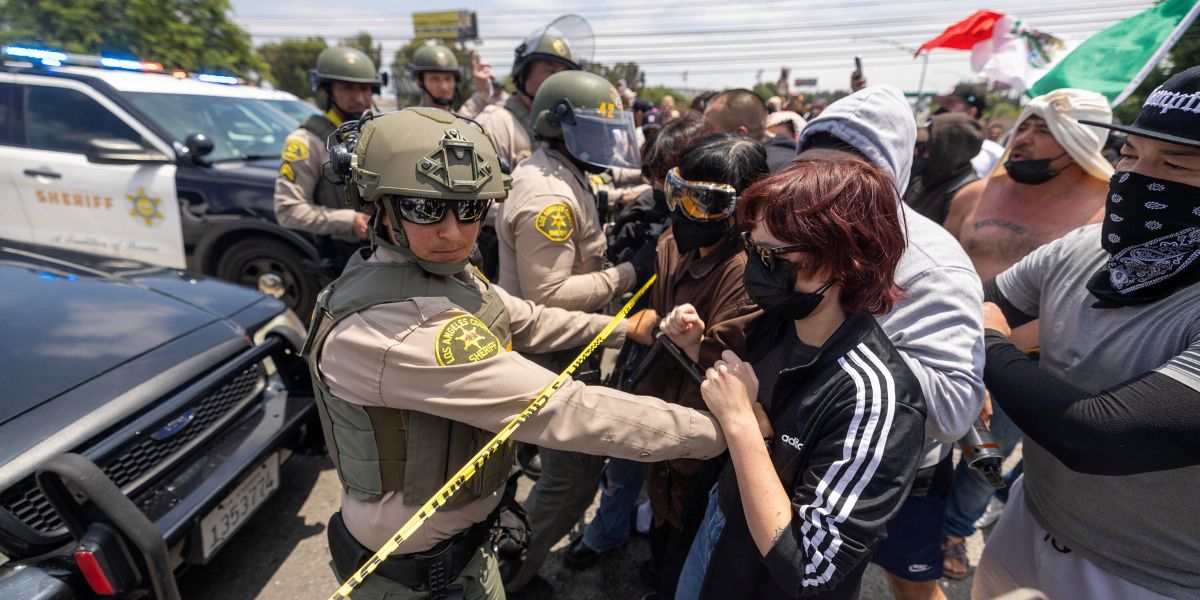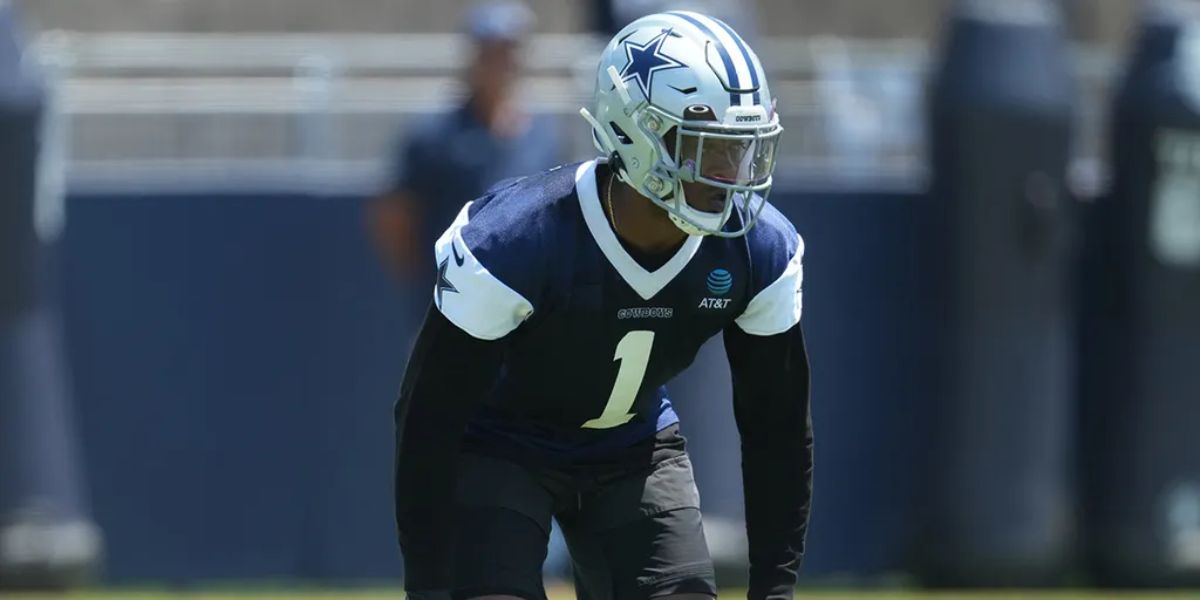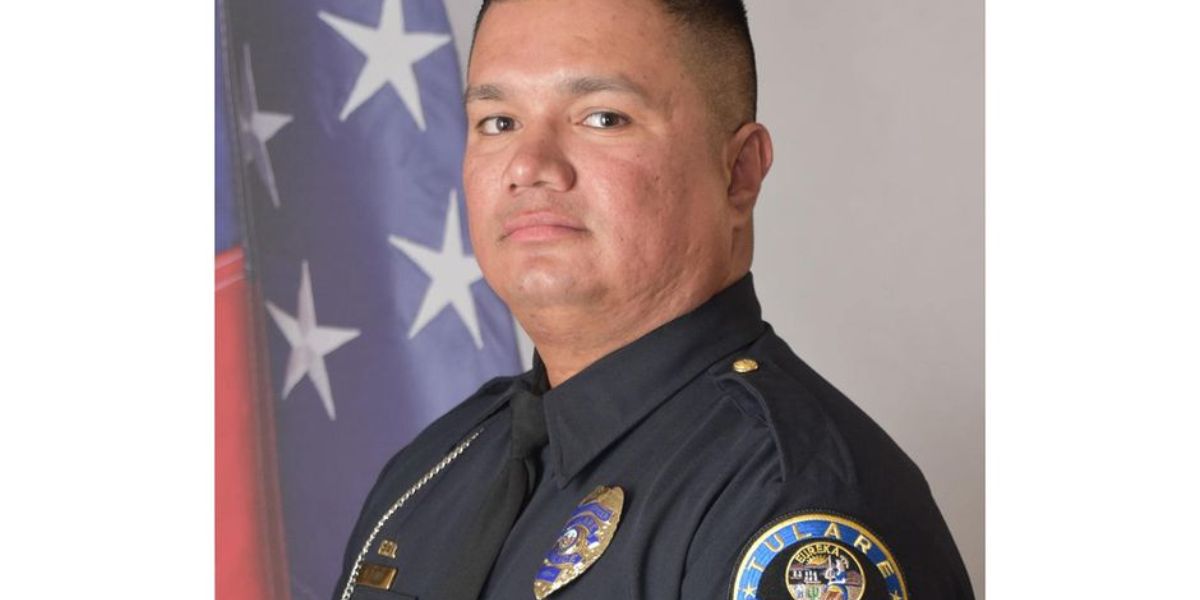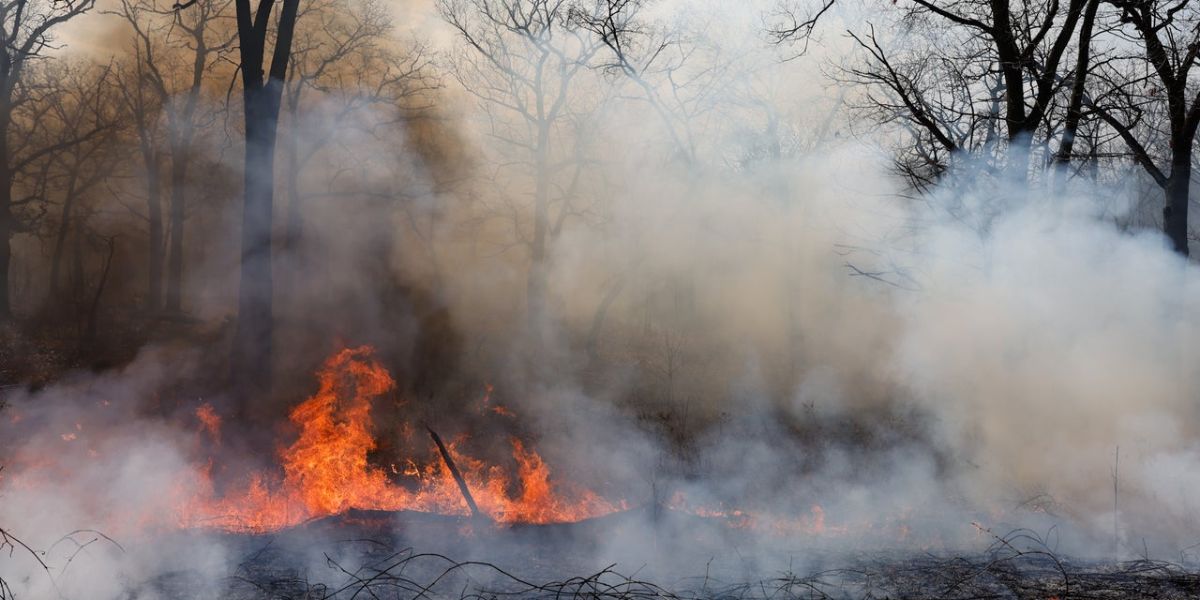LOS ANGELES, June 9, 2025 — What began as a small protest over immigration raids in Los Angeles on Friday has swelled into a multi-day confrontation involving thousands of demonstrators, federal agents, and the unexpected arrival of 2,000 National Guard troops. The fallout has raised urgent questions about federal overreach, immigrant rights, and the risk of escalating political violence in one of America’s largest cities.
The trigger: a series of U.S. Immigration and Customs Enforcement (ICE) raids on June 6 that resulted in the arrest of at least 44 individuals. The raids sparked outrage and fear in the immigrant-rich communities of Los Angeles and quickly drew protesters into the streets.
A Timeline of Escalation
Friday, June 6
The raids began early Friday, targeting multiple commercial locations including a Home Depot and a clothing store in the Fashion District. At least four warrants were executed across the city. Among those detained was David Huerta, president of the Service Employees International Union (SEIU), allegedly for interfering with officers. The union claimed Huerta was exercising his First Amendment rights.
By evening, over 100 protesters had gathered at the downtown immigration detention center. Police declared an unlawful assembly, deploying tear gas, flash-bangs, and riot control tactics after some protesters began throwing concrete and bottles.
Saturday, June 7
Protests intensified in the city of Paramount, where Border Patrol agents were spotted early in the day. A false alarm about another raid at a local Home Depot drew hundreds of protesters. Federal agents used tear gas and flash-bangs as demonstrators responded with fireworks and by blocking law enforcement vehicles.
Later that day, President Donald Trump signed a presidential memorandum authorizing the deployment of 2,000 National Guard troops to Los Angeles — without Governor Gavin Newsom’s request or consent. This marked the first such unilateral deployment in California since the civil rights era.
That evening, tensions spread to Compton, where a car was set ablaze. Mayor Emma Sharif called for calm, warning that “violence and the destruction of property are not the solution.”
Sunday, June 8
By Sunday morning, 300 National Guard troops were stationed at multiple locations across Los Angeles, including the Metropolitan Detention Center. Protesters regrouped downtown, where rallies remained peaceful until afternoon skirmishes broke out.
As protests escalated, demonstrators clashed with officers, vandalized five Waymo self-driving taxis, and briefly shut down the 101 Freeway. Authorities issued dispersal orders and declared unlawful assemblies in the Civic Center and Olvera Street areas.
In response to Trump’s federal action, Newsom posted on X (formerly Twitter): “Deploying the National Guard in Los Angeles is purposefully inflammatory and will only escalate tensions… This is the wrong mission and will erode public trust.” Later that day, he sent a formal letter to Defense Secretary Pete Hegseth requesting that the federal order be rescinded.
Political Divide and Civic Concerns
The events in Los Angeles have drawn sharp national scrutiny, especially as the federal government continues to push aggressive immigration enforcement operations.
“This is a violent insurrection,” wrote senior Trump advisor Stephen Miller on X, echoing language usually reserved for political uprisings.
Federal law enforcement officials defended their actions. “Anyone who obstructs federal agents will face arrest and prosecution,” warned U.S. Attorney Bill Essayli, reinforcing the administration’s stance.
But local and state officials, including LAPD and Governor Newsom, maintain that the federal response has only worsened tensions. LAPD, while praising peaceful protesters, announced tactical alerts across the city and used “less lethal munitions” to manage crowds. Their statement emphasized a commitment to protecting public safety while safeguarding constitutional rights.
Civil liberties advocates worry about the implications of unilateral troop deployments and aggressive federal tactics in a diverse city with deep immigrant roots.
“This is not just about ICE or deportation—it’s about the militarization of law enforcement and the erosion of state sovereignty,” said Adriana Lopez, director of the Southern California Immigrant Legal Defense Coalition. “We’ve crossed a line.”
What Happens Next?
By Monday morning, downtown Los Angeles remained heavily policed, with legal observers and civil rights groups beginning to document possible abuses and arrests. Several lawsuits are reportedly being prepared on behalf of protesters detained over the weekend.
Governor Newsom has not received a formal response from the Pentagon regarding his request to rescind the troop deployment order.
Were you in Los Angeles this weekend? Did you participate in or witness the protests? Share your experience in the comments below.




